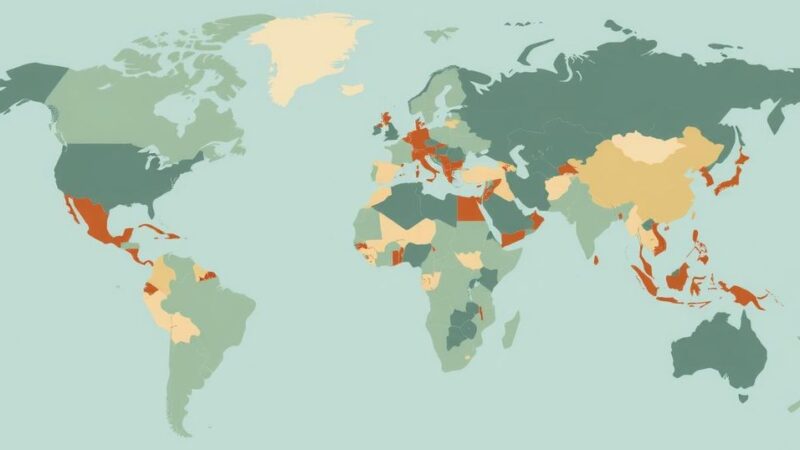Key humanitarian issues are reported in the Occupied Palestinian Territory, Syria, Yemen, and Sudan, with a focus on the impacts of violence on civilians and the urgent needs for humanitarian aid. The recent ceasefire between Israel and Hamas is seen as a crucial opportunity for relief efforts in Gaza. In Syria, malnutrition rates and educational disruptions are concerning, while Yemeni civilians face increased hostilities affecting essential services. Sudan experiences intensified violence against civilians, prompting calls for protection and immediate action from the international community.
Today’s top news addresses critical humanitarian situations in the Occupied Palestinian Territory, Syria, Yemen, and Sudan, highlighting urgent needs and ongoing challenges faced by civilians in these regions. Under-Secretary-General Tom Fletcher welcomed a recent ceasefire between Israel and Hamas, emphasizing the necessity of adhering to international humanitarian law to ensure the safety and well-being of affected populations in Gaza. Humanitarian agencies are mobilizing to deliver aid to those who have suffered immense losses and trauma over the past years.
Reports indicate that ongoing violence has resulted in severe humanitarian implications, particularly in Gaza, where attacks have still impacted civilians. Daily reports from the Office for the Coordination of Humanitarian Affairs (OCHA) reflect the dire need for assistance amid a significant fuel shortage hampering healthcare and sanitation services, placing countless lives in jeopardy. Additionally, access to humanitarian aid remains obstructed by Israeli authorities, exacerbating the crisis.
Meanwhile, in Syria, humanitarian operations are ongoing, with efforts to provide food and monitor malnutrition rates across the country. However, many children remain out of school due to the use of educational facilities as temporary shelter for the displaced. Moreover, systemic issues in financial liquidity are impeding access to much-needed resources, further complicating the situation for families struggling to secure food and essentials.
The situation in Yemen continues to deteriorate as hostilities impact vital civilian infrastructure, creating significant hardship for the population. Assistant Secretary-General Joyce Msuya emphasized the importance of the Red Sea ports in bringing life-saving aid to millions and underscored the necessity of financial support for humanitarian efforts amidst the protracted crisis. A political resolution remains critical in addressing the needs of the Yemeni people and re-establishing stability in the region.
In Sudan, the UN Resident and Humanitarian Coordinator Clementine Nkweta-Salami condemned escalating violence against civilians. Reports of ongoing shelling and aerial attacks have resulted in numerous casualties and displacements. The Coordinator called for immediate action to protect civilians and adhere to international humanitarian law, urging an end to the bloodshed and violence affecting the population across various states.
The humanitarian crises in the Occupied Palestinian Territories, Syria, Yemen, and Sudan arise from prolonged conflicts marked by violence against civilians and severe infrastructure challenges. In Gaza, the recent ceasefire offers a fleeting glimmer of hope but presents significant logistical hurdles for aid delivery amidst security concerns. In Syria, ongoing conflicts and financial barriers hinder the distribution of essential resources. Yemen faces dire infrastructure threats that impede humanitarian operations, while Sudan contends with rising violence and civilian casualties. Collective efforts from humanitarian organizations and the international community are needed to alleviate suffering and restore stability.
In conclusion, the situations in the Occupied Palestinian Territory, Syria, Yemen, and Sudan highlight the urgent need for humanitarian assistance and protection of civilian rights. While ceasefires may offer temporary relief, sustained efforts are required to uphold international humanitarian law and provide the necessary support infrastructures for affected populations. The international community must engage actively to address these multifaceted crises to mitigate further escalation of violence and suffering.
Original Source: www.unocha.org






